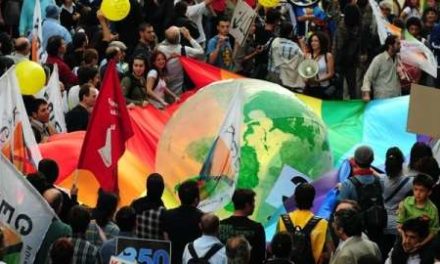[Espanol]
Larry Lohmann*
First published in Red Pepper, August 2007
Forget, for a moment, the Kyoto Protocol and the EU Emissions Trading Scheme. Leave aside the burgeoning carbon “offset” business. If you’re looking for real progress on climate change, your time might be better spent paying a visit to a couple of coastal towns in Southern Thailand.
For travellers on the road from Bangkok to Malaysia, the crossroads at Bo Nok – Baan Krut might seem only a collection of rice fields, fishing boats, tourist resorts, coconut trees, temples and shops. Yet this is a community that defeated corporate and state plans to build one of the biggest coal-fired power plants in Thailand on its beachfront.
The victory cost years of sweat and blood. Charoen Wat-Aksorn spoke up about corrupt land grabs connected with the project and was murdered in 2004. Other villagers spent countless hours exposing the fraudulence of its environmental impact assessment – in recognition of which Jintana Kaewkhao, a local woman who never finished high school, was awarded an honorary Ph.D. Today the community is consolidating its gains, exploring wind-powered electricity and lending a hand to communities battling fossil fuel projects elsewhere.
One such community lies several hundred kilometres south in Chana district. Chana’s local monster is a prestige Thai-Malaysian natural gas pipeline and refining venture backed by Thailand’s ousted tycoon Prime Minister Thaksin Shinawatra.
Chana is less lucky than its sister community to the north. After years of fraudulent land deals, bribes, and intimidation and beatings by police, a huge gas separation plant now defiantly sits on community wakaf land, a supposedly inalienable Muslim commons entrusted to God, drawing gas from a pipeline illegally forced across a local beach. A gas-fired power plant is going up. Chemical works may not be far behind. But villagers are not giving up. They say that they are fighting not only for their lives and religion, but for a natural heritage that belongs to the whole country.
Some professional climate activists slight such local struggles as secondary to the task of negotiating global emissions reduction targets. They forget that dealing with climate change means, above all, finding practical means of keeping fossil fuels in the ground. As eminent climatologist Jim Hansen reiterated in June, burning the Earth’s remaining coal, oil and gas “would guarantee dramatic climate change, yielding a different planet from the one on which civilisation developed.”
No one is better informed about what it will take to prevent that happening than communities like Bo Nok and Chana. Their experience reminds us that however brilliantly the world theorizes ways of getting carbon out of energy, it is also going to have to get energy companies out of fossil fuel deposits. Any serious climate change movement will have to connect with such communities everywhere, whether they are battling Shell in the Niger delta or in Rossport in Ireland or contesting the huge new National Grid gas pipeline in South Wales. These are communities dialled into the politics of the future.
In the absence of a climate movement empowered and informed by such communities, every step governments and corporations take on climate change is likely – by contrast – to be a step into the past. Politicians and business will keep on presenting ambitious climate goals for public consumption without seeking the practical means necessary to achieve them.
UK officials, for example, talk of reducing greenhouse gas emissions by 60 per cent by 2050. Yet they promote airport expansion, back World Bank efforts to ramp up fossil fuel use worldwide and are committed to large-scale carbon trading – a messy US invention that only slows the transition away from fossil fuels. As Oxford development studies professor Barbara Harriss-White remarks, it’s hard to see what British climate policy is doing “other than serving as a mass tranquilizer.”
In the private sector, meanwhile, banks such as Barclays parade plans to go “carbon neutral”, while at the same time expanding fossil fuel investment and their fossil fuel trading teams. Emblematically, Barclays has even pitted itself directly against the hydrocarbon protesters of Chana. With an investment of US$257 million, Barclays Capital leads the consortium of banks supporting the Trans Thai-Malaysia gas project. Despite repeated invitations, none of its 13,200 worldwide staff has ever even visited the Chana villagers. Contempt – not only for local livelihoods, but also for the aspiration for a livable climate – doesn’t come much clearer than that.
Chico Mendes, the Brazilian unionist who was murdered in 1988 while working to save the jobs of rubber tappers threatened by Amazon clearance, had a famous saying. “At first I thought I was fighting to save rubber trees,” Mendes said. “Then I thought I was fighting to save the Amazon rainforest. Now I realise I am fighting for humanity.”
Villagers in Bo Nok, Chana and elsewhere could say the same. Who are the real climate leaders? It may be time for a rethink.
*Larry Lohmann works with The Corner House, a research and solidarity NGO in the UK. An account of the struggle in Chana can be found at www.thecornerhouse.org.uk








